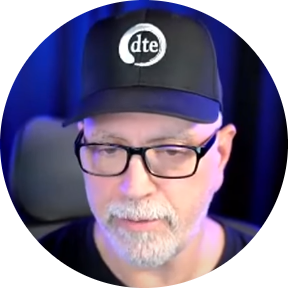19 Best Trading Courses: Top Programs for Any Online Trading Types
Updated On

Online trading refers to buying and selling financial assets on digital marketplaces for profits. Trades are made through a brokerage’s internet-based trading platform that lets anyone have access to global markets. These platforms offer a convenient way to invest in various assets These assets include stocks, foreign exchange, mutual funds, REITs, ETFs, and even cryptocurrencies.
While there are similarities, trading can be more than just gambling. It is true that trading involves uncertainty, speculation, and emotional factors. But trading allows for analysis and strategy. Unlike gambling, where outcomes are mostly random (like rolling a dice or spinning a roulette wheel). Traders can use fundamental analysis, technical indicators, and risk management techniques to make informed decisions.
A beginner should learn about financial markets, trading principles, and specific strategies. You can start by reading books, taking courses, and studying market analysis. Also, you need to understand the basics of technical analysis, fundamental analysis, and risk management. Online courses offer structured learning programs that can guide you every step of the way.
Some of the best online trading courses in my opinion are:
- Bullish Bears by Lucien Bechard
- Bulls on Wall Street by Kunal Desai
- Index Fund Pro by Andrew Giancola
- Trade With Me Now by Michael Love
- Wealth Builders Institute by Todd Rampe
This article presents you with the best trading courses online, with entries organized by categories. You will also learn about different trading styles, financial assets to trade, and if it’s worth jumping into trading in 2024.
What Is the Best Online Trading Course?
The best online trading course is Bullish Bears by Lucien Bechard. This platform stands out from all the other trading courses with its reasonable pricing and the wealth of educational material it offers. It caters to beginner and intermediate traders, with an advanced program for experienced investors. Bullish Bears also has a strong and active community that you can tap into anytime.
The best affordable course that caters to beginners and intermediate traders is Darold Trinh’s Long Wealth Capital, which costs only $9.97. The best sites where you can learn trading for free are Bullish Bears or Udemy. These sites allow you to create an account without any charge. Another option is ForexBrokers, if you’re specifically interested in Forex trading. The site recommends brokers offering free courses, such as Ava Academy and Traders’ Academy.
Best Day Trading Courses
Bullish Bears by Lucien Bechard

Lucien Bechard’s Bullish Bears offers educational resources for both new and intermediate stock traders. It includes a variety of both free and paid courses on day trading, futures, and technical analysis. It encourages an active community where users can exchange ideas and learn from expert-led live streams.
The platform is generally well-received for its content and supportive environment. However, some have found it not very user-friendly, and the risks associated with day trading are notable. With reasonable pricing and different subscription plans, Bullish Bears is praised for its valuable educational material. Its adaptation to the changing market highlights its goal to provide practical trading education and support for traders.
Price: The price for Bullish Bears membership costs $69.97 monthly subscription, 399 for 1 year access, and $597 for unlimited access.
More Info: Bullish Bears Review
Elite Signals by Elie Abou Faissal

Elite Signals offer a comprehensive trading course and tools for various markets, including stocks, forex, and crypto. The course utilizes the Elite Algo indicator and signals, designed to increase market prediction accuracy, especially suited for both beginners and experienced traders. It covers using TradingView and offers coaching and a community for support.
Price: Elite Signals costs $995 for the lifetime membership or $67.95 a month. 1-on-1 coaching costs $699.95 to $999.95.
More Info: Elite Signals Review
0-DTE Options Trading Blueprint by Ernie Varitimos

0-DTE Options Trading Blueprint focuses on zero days to expiration (0DTE) options trading. It teaches strategies for high-risk, high-reward trades in the stock market. The course aims at experienced traders, offering techniques for exploiting short-term price changes in options that expire on the same day. It requires significant risk management skills, as 0DTE trading involves rapid price decay and vulnerability to market volatility. The course includes detailed strategies, personal mentorship options, and tools to assist in trading decisions.
Price: 0-DTE Options Trading Blueprint costs $297. The VIP coaching program costs $6,000 a year, and the customized coaching with lifetime plan costs $10,000.
More Info: O-DTE Options Trading Blueprint Review
Monument Traders Alliance by Bryan Bottarelli

Monument Traders Alliance offers a trading course focusing on options trading. It is co-founded by Bryan Bottarelli and Karim Rahemtulla. The key service, the War Room, provides trade recommendations and education with a claimed high win rate. The course is tailored for a range of traders from beginners to veterans, incorporating various subscription services and tools for trading insights.
Price: Monument Trader Alliance’s War Room costs $7,500 a year.
More Info: Monument Trader Alliance Review
VIP Trading Program by Maurice Kenny

Maurice Kenny’s VIP Trading Program is an in-depth coaching course on how to become successful day traders using Kenny’s specific strategies. The program includes video lectures, private and group coaching sessions, and covers stock market analysis and trading schedules. The program demands a significant time commitment and has a thorough screening process to ensure participants are a good fit.
**Price:**VIP Trading Program by Maurice Kenny cost between $1,000 to $7,000.
More Info: VIP Trading Program Review
What Is Day Trading?
Day trading is a fast-paced form of investing where individuals buy and sell securities (like stocks, currency pairs, or cryptocurrencies) within the same trading day. The primary goal is to capitalize on intra-day fluctuations in the financial markets. Unlike long-term investors, day traders are less concerned with the fundamental value of the assets/securities. Instead, it is more focused on capturing immediate gains from market volatility.
The appeal of day trading is its potential for quick gains. However, it’s also associated with significant risks. Day traders need a solid understanding of the markets and the ability to make fast, informed decisions. To this end, day traders monitor market headlines, economic reports, and other factors that influence stock prices throughout the day. They also often use leverage, which can amplify both profits and losses.
Keep in mind that day trading requires discipline, risk management, and continuous learning. It’s generally not recommended for inexperienced traders or those without the financial capacity to absorb losses.
Best Swing Trading Courses
Bulls on Wall Street by Kunal Desai

Bulls on Wall Street by Kunal Desai is a learning platform on stock trading education and resources. Their strategies emphasize day trading and swing trading strategies. The platform provides access to over 60 hours of video lessons and webinars. Their focus is on technical analysis, trade execution, and risk management. Students enjoy live trading demonstrations and mentorship. They can also take advantage of the supportive community of traders.
Price: Bulls on Wall Street’s Live 60-day Bootcamp costs $2,850.
More Info: Bulls on Wall Street Review
Wealth Builders Institute by Todd Rampe

The Wealth Builders Institute (WBI) is an educational platform designed to teach new traders how to succeed using the TSL strategy and market analysis. It offers a comprehensive 6-week program, regular workshops, and direct coaching to help students navigate market fluctuations and maintain profitability. The platform was created by Todd Rampe. It covers various trading strategies, including futures, stock options, swing trading, trading psychology, and risk management.
Todd Rampe is the founder of Wealth Builders Institute based in Las Vegas. He was a fighter pilot before he became a financial advisor and stock broker in 1998. He also authored two books – “Trading by Numbers” and “How to Profit in the Forex Market".
Price: Not disclosed on the website, but online forums say it’s around $9,000
More Info: Wealth Builders Institute Review
The Daily Traders by Mark Thomas

The Daily Traders mentorship program by Mark Thomas offers a comprehensive introduction to trading stocks and cryptocurrencies. It features 5 hours of pre-recorded content focused on trading strategies, technical analyses, and different trading types, including day trading and options trading. The program promises to equip beginners with the skills needed to become million-dollar traders.
However, it is important to note that such success requires significant effort, time, and market knowledge. Critics point out the lack of credible proof of Mark Thomas’s trading success, raising concerns about the authenticity of his claims. Priced at $494, the mentorship includes access to a large community on Discord and real-time trading updates.
Price: The Daily Traders costs $494.
More info: The Daily Traders Review
Trade With Me Now by Michael Love

Trade With Me Now is a comprehensive stock trading training program offering various strategies like swing and day trading, using proprietary tools and indicators. Designed by a former chef, the program aims to help beginners potentially grow their investments significantly in a short period. It includes courses on different types of trading, including cryptocurrency and NFT trading, with custom trade alerts and a focus on swing options trades.
Price: Trade With Me Now costs $1,497 a year for the Day Trading Course, and $3,700 a year for the TWMN Legacy Elite.
More Info: Trade With Me Now Review
Money Press Method by Preston James

Money Press Method by Preston James teaches how to achieve consistent income generation through weekly options trading. The program targets both beginners seeking to venture into options trading for the first time and seasoned investors looking to adopt Preston’s strategies. The Money Press Method approach aims for efficiency, claims substantial growth potential, and provides traders with actionable insights to capitalize on weekly options trading opportunities.
**Price:**Money Press Method offers free learning materials (1 printed guidebook, 2 instructional DVDs). People only have to pay $7 for the shipping.
More info: Money Press Method Review
What Is Swing Trading?
Swing trading is a trading style that aims to capture medium-term price movements within financial markets. In this trading style, traders hold positions for several days to a few weeks. Unlike day traders (who close positions within a single day), swing traders have a longer time frame.
Compared to day trading, swing trading involves moderate risk. Traders manage risk through position-sizing and stop-loss orders. Swing traders also need emotional discipline and patience since waiting for the right setup. Avoiding impulsive decisions is also crucial.
Best Scalping Courses
Warrior Trading by Ross Cameron

Warrior Trading, led by Ross Cameron, is a day trading educational platform offering courses and tools for various trading strategies, including day and swing trading. The program targets beginners to advanced traders and provides a comprehensive approach, from fundamental techniques to complex strategies like small-cap scalping. The course includes access to a trading simulator, emphasizing the importance of risk management and strategy development.
Price: Warrior Trading costs $797 for the Basic plan or $2,797 for the Pro plus up to $247 a month for the trading tool subscription.
More Info: Warrior Trading Review
Stock Hours by Nour Atta

Nour Atta’s Stock Hours offers a day trading signals chat membership focusing on scalping, which capitalizes on quick market movements. It includes training, alerts, algorithm, and live trade streaming, but it’s noted for being high-risk and high stress, making it less suitable for beginners. This program is recommended for experienced traders, especially those interested in scalping.
Price: Stock Hours costs $199 a month for the signals group and $49 a month for the algorithm. The VIP bundle costs $224.99 a month.
More Info: Stock Hours Review
My Investing Club by Alex Temiz

My Investing Club (MIC), co-founded by Alex Temiz, offers a day trading community focused on strategies like scalping and intraday swing trading. The club provides various membership tiers (Silver, Gold, Platinum), featuring access to a Slack chat room, webinars, video libraries, trade alerts, and mentorship calls. Aimed at both beginners and experienced traders, MIC emphasizes learning through courses and real-time trade analysis.
Price: My Investing Club costs $497 a month for the Silver membership. Gold and Platinum can cost up to $15,000.
More Info: My Investing Club Review
What Is Scalping?
Scalping is a trading strategy where traders aim to profit from small price movements in financial markets. It involves very short timeframes, often minutes or seconds. Scalpers make rapid trades to capitalize on small price fluctuations, and they often execute multiple trades throughout the day. They rely on high liquidity and tight bid-ask spreads to enter and exit positions swiftly.
Since scalping involves more frequent trades, risk management is crucial. Scalpers use tight stop-loss orders to limit losses. Scalping works best in highly liquid markets, such as Forex, stocks, or futures, as they allow for quick execution and minimal slippage. To reduce latency, traders often use direct market access (DMA).
Scalping can be intense and mentally demanding due to its rapid pace. It’s essential to practice and develop discipline to succeed as a scalper.
Top Crypto Trading Courses
We have a separate list of top crypto trading courses online due to cryptocurrencies’ marked differences from other financial assets. For instance, cryptocurrencies are highly volatile, decentralized, and are more easily influenced by market sentiment/psychology. So, it would be best to learn crypto trading from a course dedicated to it.
What Is Crypto
Crypto is a digital currency or token secured by cryptography. These digital assets are not issued or governed by any central bank and are not recognized as official currencies like fiat money. Some cryptocurrencies are created by developers, while others are generated by network algorithms.
Unlike fiat currencies, cryptocurrencies exist only in digital form. They operate on a public ledger called a blockchain, recording all transactions. Blockchain encryption ensures immutability and security against tampering and fraud.
Crypto Trading activities are not controlled by governments or central banks. Being highly speculative, crypto trading relies more on technical analysis, studying price charts and patterns. Fundamental analysis in crypto trading is often limited to reading market sentiment, or just how other crypto investors would feel about certain news.
What Is the Best Trading Type for Beginners?
Long Wealth Capital by Darold Trinh

Darold Trinh’s Long Wealth Capital offers a beginner-friendly and affordable stock trading mentorship program, featuring modules on fundamental analysis, technical analysis, risk management, and entry/exit strategies. Trinh emphasizes a focus on quality, undervalued stocks and long-term compounding gains, advocating against emotional investing and day trading.
While the platform is still in its infancy and lacks extensive online reviews, Trinh’s personal success as a stock investor and his commitment to teaching suggest potential value for students. Overall, Long Wealth Capital provides accessible education for aspiring traders, with an emphasis on fundamental principles and real-life mentorship experiences.
Price: The mini mentorship is $9.97, and $47 for the Flawless Options Trading System. The cost of Darold Trinh’s one-on-one coaching program isn’t posted on his website.
More info: Long Wealth Capital Review
Stock Navigators by Tim and Tom Luong

Stock Navigators by Timothy and Tom Luong is an educational trading platform offering courses for both beginners and experienced traders. Their flagship strategy, ‘Echo Mapping,’ aids in identifying entry and exit points in trades. The courses are self-paced, have Q&A sessions, a student community on Discord, and a 60-day refund policy.
**Price:**Stock Navigators’ Money Method Zone costs $97. The Expert Trader Program cost range is $4500 to $7800.
More Info: Stock Navigators Review
Index Fund Pro by Andrew Giancola

Index Fund Pro by Andrew Giancola offers a comprehensive trading program with over 30 video lessons guiding investors through investing in index funds, focusing on long-term wealth building. While index funds provide diversification and steady returns, they may not outperform the market, and investors have limited control over individual stocks. Pros of Index Fund Pro include affordability and a generous refund policy, while cons include limited student reviews.
For $99, you can gain access to lessons covering various aspects of index fund investing and a chance for a coaching session with Giancola. With a solid reputation and net worth of $1.5 million, Giancola aims to help beginners and experienced traders alike achieve financial freedom through his programs.
**Price:**Index Fund Pro costs $99.00.
More Info: Index Fund Pro Review
Infinity Investing by Tobi Mathis

Toby Mathis’ Infinity Investing is an educational platform focused on teaching investing in real estate and the stock market. It offers various resources like courses and coaching to help users grow wealth and achieve financial freedom. Despite positive user feedback, the platform lacks external reviews due to its recent introduction.
Members can choose from free and paid memberships, but refunds aren’t available. The platform’s success in generating passive income may depend on the current economic conditions, emphasizing the importance of cautious investment strategies in the fluctuating real estate and stock markets.
**Price:**Free membership, Starter Membership costs $29.95/month, 360 Pro Membership costs $2,997 one-time payment; $997 annual renewal, Coaching programs (non-members) cost $4,997 for 10 one-on-one sessions and $2,795 for 5 one-on-one sessions.
More Info: Infinity Investing Review
Jeff Clark Trader

The Jeff Clark Trader program, led by successful options trader Jeff Clark, is a comprehensive course designed to educate individuals on profiting from options trading. Priced at a discounted $19 from $199, the program includes a full year of new trade opportunities, frequent updates, special reports, and access to the Money Multiplier Masterclass. Jeff Clark Trader has received negative reviews on platforms like Trustpilot and some YouTube videos. Potential students should consider the complexity of options trading before enrolling.
Price: Jeff Clark Trader costs $199 but right now it’s $19.
More Info: Jeff Clark Trader Review
Watch Trading Academy by Pejman Ghadimi

The Watch Trading Academy teaches how to profit from buying, selling, and trading luxury watches. This is by Pejman Ghadimi that builds on his earlier course, Watch Conspiracy. The program focuses on purchasing watches at their lowest value. Then, selling them for a profit, with the potential for a 19% ROI within 72 hours. Some users praise the course for its resources and active Facebook community. Others criticize it as a high-level multi-level marketing scheme with limited unique strategies. Watch flipping is an active business model. However, it requires significant effort, patience, and capital. This can be a lucrative side hustle, but not a passive income stream.
Price: Watch Trading Academy costs $1,997. If you watch the free training, you’ll receive a “limited” offer of $497.
More Info: Watch Trading Academy Review
Prosper Trading Academy by Scott Bauer

Prosper Trading Academy is an online platform offering trading education, including courses, mentoring, and live trading support. They provide a range of programs and resources like live trading webinars, trade alert subscriptions, and eBooks. Their options volatility crash course, taught by CEO Scott Bauer, equips beginners with the essentials of options trading, strategies, and order placement techniques.
Scott Bauer is an experienced market analyst and the CEO of Prosper Trading Academy. He started at the Chicago Board Options Exchange in 1991 and became known for trading Amazon.com options. Scott has appeared on major financial networks and taught at the University of Illinois Business School. He has worked in trading for over 25 years, including a significant role at Goldman Sachs. His expertise covers trading in big companies’ stocks, like Delta Airlines and Coca-Cola.
Price: Crash Course at $499.99; Full Course for Penny Stocks and Short-Term Options at $4,995.
More Info: Prosper Trading Academy
The Real World Crypto Campus by Andrew Tate

The Real World Crypto Campus, offered by Andrew Tate, covers fundamental and advanced topics in crypto trading and investing. This includes market analysis, technical indicators, and investment strategies. It features daily lessons, live calls, and motivational posts.
.Price: The Real World Crypto Campus cost $49.99 per month.
More Info: The Real World Crypto Campus Review
Invest Diva by Kiana Danial

Invest Diva is an online trading e-learning platform. It teaches financial literacy and investment strategies. Strategies include the IDDA (Invest Diva Diamond Analysis) method, which focuses on analyzing investments from different perspectives, including fundamental, technical, and sentiment analysis, to make informed decisions. The platform also teaches techniques for trading and managing portfolios in stocks, ETFs, cryptocurrencies, and forex. Additional strategies cover advanced investment methods like using Ichimoku and Fibonacci tools for technical analysis and developing a strong money mindset to manage personal finances effectively.
Price: Invest Diva program prices range from $297 to $350,000.
More Info: Invest Diva Review
What Is the Best Trading Type for Beginners?
The best trading type to learn depends on your individual goals, risk tolerance, and preferences. For instance, day trading is best for those who want to take advantage of short-term market changes to make a profit. Those who want to ride short to medium-term trends (but longer than a day) can opt for swing trading.
It’s also a matter of perspective at times. Some would say day trading is riskier than swing trading; or swing trading is riskier than position trading. This may be true in some degree. However, trading in longer terms only means it will take more time for you to realize wins or losses.
For example, day trading is risky because you can suffer losses within the day, but you can also win quickly. Profits also depend on how large your stake is and the degree of risks, so no trading type is more profitable than the other.
AI Trading Courses
Prolific Traders by Cameron Kelly

Cameron Kelly’s Prolific Traders offers an interesting approach to day trading. It promises $12,000 monthly earnings through AI-driven strategies. The program distinguishes itself by emphasizing consistent results and personal mentorship with Kelly himself. Despite its promising features, Prolific Traders lacks comprehensive reviews outside its website and social media platforms.
The course structure includes 55 video tutorials and weekly Mastermind calls. They aim to equip traders with Cameron’s AI Smart Money Systems, streamlining trade analysis and execution. Success stories like Tom Owen’s and Bill Rohrbough’s underscore the program’s potential. However, the undisclosed pricing and absence of a specified refund policy may deter some prospective traders.
Nonetheless, for those with the requisite capital and dedication, Prolific Traders offers a structured blueprint to navigate the complexities of day trading. All are guided by Cameron Kelly’s expertise and AI-powered insights.
Price: Prolific Traders’ price is not mentioned, but you have to answer a survey and get in a call with Cameron to find out.
More Info: Prolific Traders Review
ATN Unlimited by Aaron Richards

Aaron Richards’ ATN Unlimited offers an automated trading program, emphasizing its use of AI and bots to facilitate passive income for experienced traders. The program highlights its promise of 7% to 15% ROI per month, AI-driven trading and FTC compliance. Although, a steep $25,000 minimum investment and lack of transparency is required if you want to join the program.
Testimonials on the website offer success stories but limited public information and mixed social media feedback suggest some skepticism about the program’s credibility. Richards’ background in business and trading underpins the program, but some Facebook reviews reveal a somewhat mixed online reputation.
Price: The price is not mentioned on the website, but an estimate of $25,000 capital is required before they accept you in the program.
More info: ATN Unlimited Review
What Are the Financial Assets that You Can Trade Online?
The financial assets that you can trade online are:
- Stocks
- Forex
- Mutual funds
- REITs
- ETFs
- Cryptocurrencies
The most commonly traded financial assets for retail traders are stocks, Forex, and cryptocurrencies. Each asset class has its own risk profile, liquidity, and potential returns. Choosing an asset may depend on your financial goals, or it can be just a matter of preference.
None of these financial assets can be considered “easy to learn.” However, learning to trade one financial asset can make it a bit easier to learn another. Not that the same principles apply to all financial assets, but at least you’ll develop a trading discipline that applies to all. For instance, developing skills in fundamental analysis, technical analysis, and risk management is beneficial in trading whatever financial asset.
Before trading any financial asset online, conduct thorough research, choose a reliable online broker, and formulate an investment strategy according to your goals and risk tolerance.
What Are Stocks?
Stocks are represented ownership in a publicly traded company. Other names for stocks include shares or equities. When you buy shares in a company, you become a shareholder and have certain rights and responsibilities.
These financial assets are traded on stock exchanges such as the New York Stock Exchange (NYSE) or the NASDAQ. Buyers and sellers interact through these exchanges. Each publicly traded company has a unique ticker symbol (e.g., AAPL for Apple, MSFT for Microsoft). You use these symbols to identify and trade specific stocks.
These financial assets are traded on stock exchanges such as the New York Stock Exchange (NYSE) or the NASDAQ. Buyers and sellers interact through these exchanges. Each publicly traded company has a unique ticker symbol (e.g., AAPL for Apple, MSFT for Microsoft). You use these symbols to identify and trade specific stocks.
Stocks can be volatile. Their prices can rise significantly but also decline sharply. Diversification across different stocks helps manage risk. In most cases, individual investors don’t need a broker license to trade stocks directly. To trade stocks, you’ll need to open a brokerage account with a licensed brokerage firm. Brokers act as intermediaries between you and the stock market by executing your buy and sell orders.
The best to learn stock trading is to read books on trading fundamentals and analysis. The other ways are listening to investment podcasts or audiobooks and joining online trading communities. You should also consider taking free and paid stock trading courses. Most paid courses offer coaching services that let you tap into the real experiences of long-time stock traders.
What Are Stock Options?
Stock options are contracts to get the right, but not the obligation, to buy stocks at a fixed price (or strike price). You need to pay a premium to buy an options contract. The price of the premium is calculated by the sum of the intrinsic and time value of an option. A trader can choose to exercise their options contract within a specific time frame, or it can just expire worthless while they lose the premium.
There are two types of stock options:
- Call options give the contract holder the right to buy certain stock shares at a strike price.
- Put options give the contract holder the right to sell certain stock shares at a strike price.
For example, if you bet that stock XYZ will rise above $120, you can pay a call premium to buy its options contracts. The strike price will also be $120, while each call is 100 shares. If a contract costs $5 per share, the trader will have to pay a $500 premium for one call. If the stock goes above $120, the trader can exercise their options and earn a profit. Let’s say the XYZ stock reaches $150, the trader will have a $25 profit for each share. Otherwise, the options will just expire worthless.
What Is Forex?
Forex (FX), or the foreign exchange market, is a global electronic network where currencies are traded. It has no central physical location and only operates electronically. Forex is the largest and most liquid market globally, with trillions of dollars traded daily. Currencies are traded in pairs in which some of the most popular ones are USD/CAD, EUR/USD, and USD/JPY. Trading occurs through banks, brokers, and financial institutions. The Forex market operates 24 hours a day, 5 days a week, except for holidays.
What Is Position Trading?
Position trading is a longer-term investment strategy where traders hold positions for weeks, months, or even years. Unlike day trading or scalping, position traders are not concerned with short-term price fluctuations. Traders who hold positions for a long time focus on the big picture. They analyze long-term trends and economic fundamentals to make informed decisions.
Position traders rely heavily on fundamental analysis. They assess factors like company financials, industry trends, macroeconomic conditions, and even geopolitics. For stocks, this might involve studying earnings reports, balance sheets, and growth prospects. While fundamental analysis is crucial, position traders also consider technical indicators.
Position traders manage risk by diversifying their portfolios. They allocate capital across different assets (stocks, bonds, commodities, etc.) to counter the risks of any single investment. They also make fewer trades compared to day traders. This way, they avoid the stress of constant monitoring and quick decision-making.
Long-term investors who buy and hold stocks, real estate, or other assets fall into the position trading category. Warren Buffett, known for his buy-and-hold approach, is a prominent position trader.
Note: Position trading is suited for those with a long-term perspective and the ability to withstand market fluctuations. In this trading style/type, it’s essential to have a well-defined investment plan and stick to it.
What Are the Best Trading Tools?
The best trading tools that you should have as an online trader are a market simulator, charting software, and a news source. As a beginner, you need a market simulator like eToro to practice trading without risking real money. You also need a charting software, like TradingView, to conduct technical analysis. For fundamental analyses, you need a trading news source, like Benzinga, to get real-time market updates.
The Robinhood app is better for trading if you want to trade on the go. The other options are SoFi, E*TRADE, Fidelity, Charles Schwab, and a lot more.
Is Trading Worth It in 2025?
Yes, trading is worth it in 2025, if you enter safer trading positions, like the S&P500. Also, you should avoid high-risk trades like options trading unless you have deep knowledge of how it works or are willing to absorb possible losses. You should always practice the 3-5-7 rule. The 3-5-7 rule of trading is a risk management technique in which you’re only risking 3%, 5%, or 7% of your trading capital.
Unfortunately, more and more retail investors are attracted to options trading. This is mainly because it yields huge profits, fast. They are also swayed by “insider” tips on various social media platforms and from online coaches who claim a secret strategy for winning.
Aside from internet influences, it is in the brokerages’ best interest to entice retail traders into buying options. In 2022, Citadel, a large market maker, paid a total of $2.6 billion to brokerages in exchange for allowing them to execute trade orders. And $1.5 billion of this amount came from options.
This compensation is called Payment for Order Flow (PFOF). It is paid by market makers while they earn money in every transaction by capturing the difference in bid and ask spreads. Brokerages choose to channel trade orders to market makers (instead of sending them directly to stock exchanges) for two reasons:
- The revenue they earn from PFOF allows them to offer a zero-commission service.
- Market makers are supposedly providing better executions for trade orders and market liquidity.
However, it is a known fact that the majority of options traders lose. Keep in mind that retail traders are always at an informational disadvantage compared to larger financial firms.
There are regulations in place to ensure transparency for brokerage and market maker operations. However, these financial institutions are more or less free to engage in proprietary trading. Compared to small retail traders, larger firms have the advantage of private information on their side.
My Low-Risk Recommendation for Creating Scalable Passive Income
The popularity of zero-commission and no-account minimum brokerages, like TD Ameritrade and Robinhood, has clouded the real entry cost of trading. Thus, the explosion of retail traders in stocks and other financial assets. For instance, retail traders have reached as high as 60% of the total market volume in stock options and around 20% of overall equity trading volume.
Because of zero-commission brokerages, some people are not taking into account the amount of losses a beginner will most likely incur. As an alternative, I would recommend local lead generation as a low-risk and scalable passive income source. It has the same entry cost as trading, but it doesn’t hang on to the volatility of financial markets.

In this model, you’re renting out websites that you ranked in search engine results. As “digital real estate,” the value of your sites comes from the leads that they generate. Local businesses need these leads so they are willing to pay regularly. Scaling in local lead generation means owning more websites to rent out.
Ranking a website in local keywords isn’t easy. Based on our experience, it may take six months to successfully rank a site and catch consistent leads. However, it doesn’t involve the same risks and mental stress as trading. For new investors, earning a consistent passive income without the element of gambling should be the way to go.

Follow Me
Ippei Kanehara
Founder/CEO
$52K per month providing lead generation services to small businesses
Ippei.com is for digital hustlers, industry leaders and online business owners.
His #1 online business recommendation in 2024, is to build your own lead generation business.

